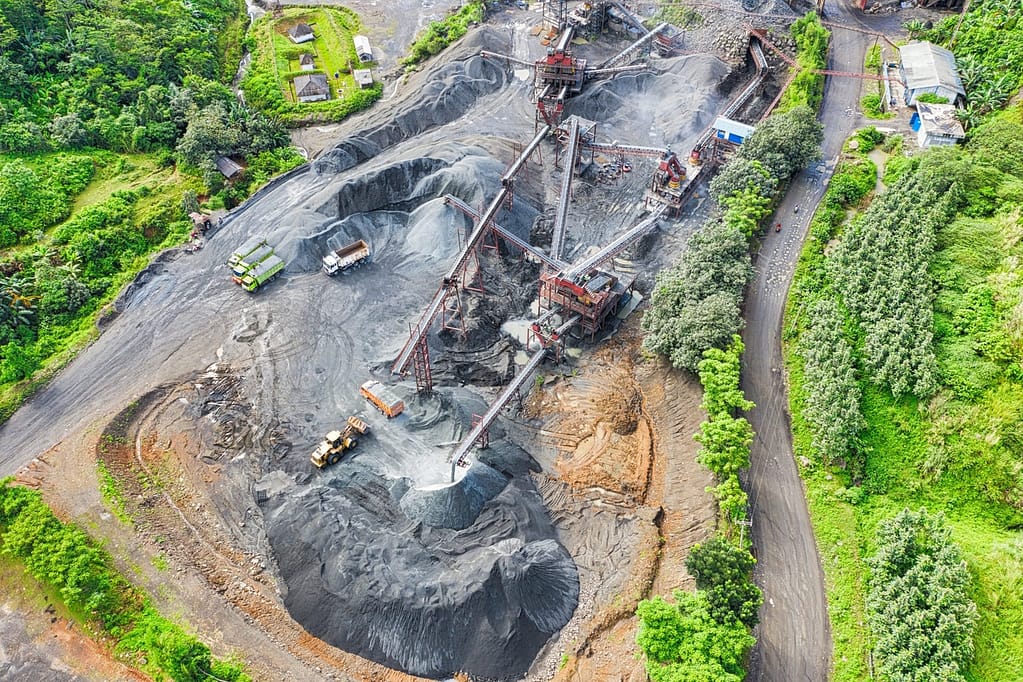Link, by Metabolic Software, is a new SaaS solution that provides nature impact and risk assessment for businesses and identifies ways to improve. By automating data processing and impact assessment, Link saves valuable time that can be redirected toward implementing solutions.
Nature is under pressure from human activities: Marine life is dying thanks to overfishing and pollution. Rainforests are disappearing for agriculture, mining, and development. Freshwater ecosystems are threatened by pollution, over-extraction, and damming.
These are all important natural ecosystems for biodiversity, carbon storage, and a sustainable future, and they all provide crucial ecosystem services and materials to the global economy. Yet human activity continues to cause harm. While individuals can make impactful changes, it’s business and organizational change that have the greatest opportunity to halt irreversible tipping points.
While companies have a massive role to play, most organizations haven’t started measuring their impact on nature. They struggle with figuring out where to start. Sustainability teams are overwhelmed with the enormous requests coming their way. Reporting requirements seem endless thanks to CSRD, and other frameworks like TNFD, and SBTN. There is no easy solution to keep track of your impact on nature so far.
Enter Link, from Metabolic Software. Link is the software solution that enables organizations to measure their impacts and risks on nature and identify ways to improve. With automated data collection and a unique prioritization module, Link provides clear direction on where to focus efforts while saving time for the business and the planet.

“Link is an automation solution that can help companies uncover the invisible impact that they’re having on natural ecosystems across the world through their purchasing activities,” said Eva Gladek, CEO and founder of Metabolic. “We allow companies to see where and when that is happening, through our geospatial analysis, combined with several impact assessment methods. This allows them to prioritize and pinpoint where they need to take action.”
Protecting and restoring nature don’t just ensure a thriving planet, but a thriving business, as well.
Why is it so hard for businesses to take action on nature?
Nature is a complex topic. A tool can certainly help, but the key to moving organizations toward a nature-positive future lies in understanding the very complexity of nature and the importance of our relationships with it. From coral reefs to rainforests, every ecosystem is important for biodiversity and all life on Earth.
We all have a relationship with nature, but we’re not all aware of that. Over the last decade, humanity has led to a mass decimation of ecosystems and populations of species. Since “Silent Spring” alerted us to ecological threats and ignited environmental movements in the 1960s, we have seen repeated warnings that have grown stronger by the year. Over the past 50 years, 69 percent of all wildlife has disappeared, according to WWF.

“We need to reverse this trend urgently, but unfortunately, understanding our impact on biodiversity is a lot harder than understanding our carbon impact,” Gladek said.
That’s because it doesn’t matter where or when you emit carbon dioxide or methane — it all ends up in the atmosphere and affects global warming. This can be captured in a single number (measured in tons CO2-equivalent) that people worldwide recognize.
But it really does matter where your other impacts on nature are located: where you or your suppliers use water, where you are farming and how, or where your items are mined.
But too often, supply chain data is unavailable, or even if it is, it’s poor quality.
Metabolic has been working with numerous companies over the last decade to create sustainable solutions, giving us a deep understanding of the challenges they face. Many of these companies are part of the bioeconomy, relying on renewable biological resources from land and sea. During the development of Link, our software team conducted additional interviews with even more companies to gain insights into their specific pain points.
Topping the list was the immense complexity of supply chains. They can have thousands of suppliers across the globe, representing many intertwined tiers. Locations within supply chains are often not known, and the commoditization of materials promotes efficiency but makes it even harder to trace materials.

Sustainability methods need to advance.
Currently, companies do not have the insights and tools to both fulfill their monitoring and reporting responsibilities, and to identify how and where to change.
Most methods that are suitable for reporting are too high-level for tracking actual progress. On the other side of the spectrum, comprehensive solutions such as life cycle assessments (LCA) don’t scale to the organizational level. LCAs also don’t incorporate context-specific risks, such as deforestation or water stress.
“Frankly, there are no solutions out there to help companies both respond to reporting requirements and actually deliver on their sustainability goals,” said Pieter van Exter, product director of Link at Metabolic Software. “With Link, we are providing a single source of truth that allows teams to address both of these needs in one solution.”
Sustainability teams want to both free up their resources and mobilize their entire company to act.
Sustainability teams tell us that they spend way too much time on data collection and reporting.

What would help? Being equipped with the right tools and knowledge to save time on reporting.
“Companies are all telling us the same thing: What’s really difficult for them to do right now is to process data automatically from their systems into a solution,” said Markus Appelman, director of Metabolic Software. “This is something we can automate while applying scientific methods to assess impact and risk.”
What does it mean to have a nature-positive business?
A nature-positive approach involves creating business operations that have a net-positive impact on the environment. Also called regenerative, this means going beyond simply reducing harm to nature but actively seeking to restore and regenerate ecosystems. Companies that take a nature-positive approach will prioritize actions that protect and enhance biodiversity, reduce carbon emissions, and promote circularity in their supply chains.

Why is this important? The health of the planet is directly linked to the health of our economies. Without functioning ecosystems, we simply cannot sustain our way of life. A nature-positive approach is therefore critical to ensuring that businesses can continue to operate in the long term. Additionally, consumers are increasingly demanding more sustainable products and services, and a nature-positive approach can help companies meet these demands and stay competitive.
How can Link help companies become nature-positive?
At Metabolic, our mission is to transition the global economy to a fundamentally sustainable state where people and nature thrive. To do this, we are working to change the system on many different fronts, everything from research to developing strategies to scaling impactful ventures — and now, building software tools.
We know that a solid sustainability strategy starts with a solid assessment. But we see too many people wasting time on number crunching when what they want to do is actually implement strategy and inspire teams to take action. Assessment can and should be a fast and easy step in a business’s sustainability journey, and it can be with the right help.

Our team is driven by a passion to automate the assessment part, making it a quick and reliable process, so that human brains can be focused on improving our system.
With Link, companies can feel confident about their strategy. We are cutting through the complexity using the latest geospatial data and following the most up-to-date frameworks. Companies can make decisions grounded in data, and communicate priorities internally and externally with easy-to-interpret graphs.
Even if you have data gaps, you can still get started with Link. We’ll help you to improve it iteratively over time.
We invite businesses to join us on this journey towards a nature-positive future by exploring Link and discovering how they can make a positive impact on the planet and their business. Together, we can protect and restore nature for a thriving planet and a thriving business.




